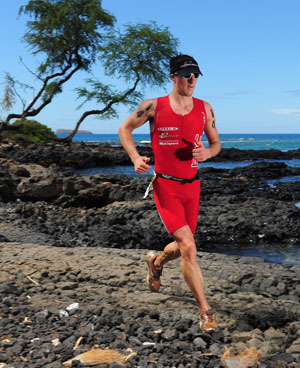Photo Credit: xterraplanet.com
1. How has your career in endurance sports influenced your care of athletes at Colorado MultiSport?
My career as a professional triathlete has really influenced my care for the athletes I work with in many ways. To start with, I understand what it takes to complete a triathlon, I know what gear works or does not work as well for specific situations, and I understand some of the mindset most athletes have. I’ve also made some mistakes and learned a lot from those mistakes that I can share with my clients to better prepare them for lots of situations within the sport.
2. What are some of the key areas cyclists need to focus on for bike fit? When should they seek out a professional bike fit?
Cyclists and triathletes of all levels need to focus on what they want out of their bike riding experience and understand that bike fitting is also a process. They can then focus on the key contact points (foot/pedal, saddle, handlebar) and how their body feels at each of those contact points for the duration each individual is riding. If there is pain or even discomfort at one of those contact points (or even limb joints) is not normal, and there is probably some malalignment or equipment issue that is causing the issue. Those can be addressed sometimes on your own, but a professional fitter can pinpoint the issues much faster and with a higher degree of having a successful outcome.
3. Can you describe the importance of sweat composition testing? Who can benefit from this service and how do the results impact training and competition?
The sweat composition testing I perform at Colorado Multisport is a very valuable service. The main point of the test is to understand each individuals unique sodium (Na+) losses so I can help the athlete replenish their loss without guessing. This is important because if an individual looses too much Na+, they may experience decreases in performance, cramping, GI distress, feelings of fatigue, feelings of dehydration, and can even lead to a more serious issue of death via hyponatremia (to little Na+ to fluid ratio in the blood stream) which is seen at marathons and Ironman events somewhat frequently these days but is very preventable. Because there is so much variability between individuals, the recommendation on the package may work for some, but not for everyone.
4. Have you noticed common nutrition and training errors by new triathletes?
The most common nutrition errors I find with new triathletes would be not fueling correctly for their training or racing. That can mean anything from not enough or to many calories, to just not drinking enough fluid because they don’t know how to carry the fluid they need. I also see lots of building fitness too fast which leads to many overuse symptoms that no fitter can really solve.
5. What are some of your professional goals for 2018?
Currently, I’m still trying to get through the busy season of 2017 to make time to thing about next years professional goals. However, continuing to show up each day and provide the best service to my clients I can, will always be a priority. I will always continue to learn more so that I can better help all my clients have great outcomes through an experiential service. I would also like to have some more customized reporting for the sweat testing and have at least one other employee help offer the great services to more individuals.

